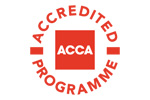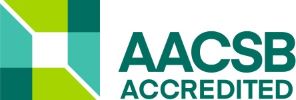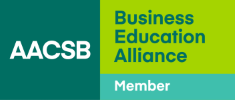Accounting & Finance BA (Hons)
 Accounting Finance.jpg)
UCAS Code: N400|Duration: 3 years|Full Time|Hope Park
UCAS Campus Code: L46
Accredited|Work placement opportunities|International students can apply|Study Abroad opportunities
About the course
In the rapidly changing business world, the demand for finance professionals has never been greater. This challenging and stimulating Accounting and Finance degree will equip you with a strong strategic outlook, ensuring that, once you graduate, you will be ready to inform and advise management decision-making at the highest level. The variety of topics studied on this degree will give you a sound grounding in theoretical and practical areas of Accounting and Finance.
Senior Professional Tutors, with practical experience in the professional services sector and who are experts in their field, work alongside well respected academic staff to ensure that, when you graduate, you will have the skills and knowledge needed for a successful career in a number of competitive areas, including accountancy, general management, banking, and finance.
We believe your ability to gain meaningful employment after you graduate is really important, so there is a strong focus on helping you to develop your employability skills.
Throughout your degree, there will be a number of opportunities and initiatives to engage and network with local, national and international businesses, giving you the chance to raise your profile and make connections in the business before you have even graduated.
Course structure
Teaching on this degree is structured into lectures, where all students are taught together, and smaller groups of seminars and tutorials. The lectures will provide you with a general framework in Accounting and Finance, whilst the seminar activities and discussions, help your understanding and application of the subject. In tutorial sessions you will not only develop your understanding of Accounting and Finance further, but at times, work together in student-led activities. Seminars and tutorials are also designed to enhance your leadership and employability skills.
If you are studying Accounting and Finance as a single honours degree, in your first year of study there are approximately 12 teaching hours per week, which decreases to approximately 10 teaching hours in your second and third years. If you are studying Accounting and Finance as a combined honours degree, in your first year of study there are approximately 6 teaching hours per week, which will decrease to approximately 5 teaching hours in your second and third years.
On top of teaching hours, you are also expected to spend between 20 - 25 hours each week studying independently. This will consist of a range of activities including additional research and reading, attendance at guest lectures and industry related events, preparation or completion of set tasks for taught sessions, revision for exams, work for your assessments and participation in group work.
Accreditation
Liverpool Hope Business School is an accredited member of AACSB International - The Association to Advance Collegiate Schools of Business. For over a century, AACSB Accreditation has been synonymous with the highest standards in business education. Accredited schools have successfully undergone a rigorous review process conducted by their peers in the business education community, ensuring that they have the resources, credentials, and commitment needed to provide students with a first-rate, future-focused business education.

Our single honours Accounting and Finance degree is accredited by the Association of Chartered Certified Accountants (ACCA) to ensure you gain professional recognition and employability skills. Studying the single honours Accounting and Finance degree will will give you the opportunity to use your degree credits to apply for exemptions from some ACCA exams, once you graduate. The University registers all single honours students on the Accounting and Finance course with the support programme run by ACCA. This offers you a range of practical help and guidance.

Our single and combined honours Accounting and Finance degrees are accredited by the Institute of Chartered Accountants in England and Wales (ICAEW) for the purpose of exemption from some professional examinations. Studying an Accounting and Finance degree will give you the opportunity to use your degree credits to apply for exemptions from some ICAEW exams, once you graduate.
Assessment and feedback
There are a number of written assessments to complete throughout the year. These may include individual reports/analyses, group presentations supported by a report, in-class tests, and essays. There will also be final exams at the end of each year.
You will be given written feedback on your assessments, and you will have the opportunity to discuss this with your tutor in more detail.
Curriculum overview
This single honours degree requires you to study nine compulsory themes that lead to exemptions from some of the ACCA professional exams. There are an additional five topics that you then study in practice, once you have graduated, in order complete your professional studies.
The single honours degree enables you to obtain up to 5 exemptions from ICAEW professional exams, subject to achieving the required pass mark. The combined honours degree enables you to obtain up to 3 exemptions from ICAEW professional exams, again subject to achieving the required pass mark.
*Please note these topics marked with a * are only studied on the single honours degree.
Year One
Foundations in Accounting and Finance
Your first year provides you with the knowledge of the key elements that support your studies in Accounting and Finance. You will study:
Principles of Financial Accounting
This unit focuses on the underlying principles and concepts of financial accounting. It covers the essential building blocks of understanding the elements of the financial statements and how a set of accounts is put together. It includes the very practical application of double entry bookkeeping techniques. Students will gain an understanding of the regulatory and ethical environment which supports financial reporting.
Principles of Economics
This unit covers the basic elements of microeconomic and macroeconomic theory, including the workings of supply and demand with applications, analysis of various market structures, as well as unemployment and inflation, economic growth and monetary and fiscal policies. This enables students to understand the broader practical context of Accounting and Finance.
Quantitative Methods
This unit is an introduction to basic concepts of descriptive and inferential Statistics, including an introduction to the use and analysis of data by employing statistical software. This provides a grounding for later studies on the programme, along with dissertation preparation.
If you study Accounting and Finance as a single honours programme, you will also study:
Introduction to Business Management*
Study in this area enables students to understand the broader context of business and in particular to appreciate how the individual subjects of Business, Economics and Marketing inter-act with the role of accountants.
Year Two
Intermediate Accounting and Finance
Second year subjects build on the knowledge gained in your first year studies. You will study:
Intermediate Financial Accounting
You will develop your knowledge regarding the preparation of financial statement. This year focuses on the preparation and interpretation of company accounts, based on the principles set out in the International Financial Reporting Standards.
Management Accounting
You will be introduced to this major strand of accounting, which focuses on preparing financial data to support business decision making. Topics covered include understanding costs, determining pricing policies, budgeting and variance analysis and capital investment decisions.
Contemporary Research Methods
This area of study builds on the material covered in Quantitative Methods in the first year and provides students with a grounding in the processes of academic research and writing, including academic referencing and data analysis. Students prepare an initial proposal for their dissertations, giving them a real head start on final year studies. In this module, students will learn a new statistical software (STATA), which will help them to undertake their data analysis as part of their final year dissertation.
If you study Accounting and Finance as a single honours programme, you will also study:
Audit and Assurance*
Over the course of study, this topic covers the full cycle of accepting, planning, delivery and reporting the findings of an external audit. It looks at all of the building blocks and challenges of delivering an audit compliant with International Standards of Auditing.
A practical course, designed to ensure students have a good understanding of systems and controls and how to mitigate the risk of Fraud
Corporate and Business Law*
The focus of studies is to enable students to gain an understating of the corporate legal frameworks, set in the context of the English and European legal systems. Topics covered include the Law of Tort, the Law of Contract, Remedies for breach of Contract, Employment Law and a review of corporate and unincorporated business structures. Studies are concluded with a review of corporate rescue and insolvency processes.
Year Three
Advanced Accounting and Finance
Third year subjects build on the knowledge gained from your second year studies. You will study:
Advanced Accounting and Accountability
Building on subjects covered in Intermediate Financial Accounting, students will gain practical experience of preparing consolidated accounts, and preparing statements of cash flow, alongside an understanding of the impact of cash in a business. Students will have the opportunity of working together to prepare a presentation, which helps to develop communication skills. The context of studies is broadened by reviewing a full set of financial statements, so that areas of risk analysis, accounting for sustainability and governance and ethical issues can be appreciated. Accounting policies are reviewed to understand the impact of creative accounting.
Performance Management
Study in this area follows on from second year studies in Management Accounting, where themes and principles are developed further. In this module particularly, students will consider the relevance and impact of non-financial data in supporting business decisions and in helping to develop and review an organisation’s business strategy. Alongside the non-financial data, students will consider financial data to calculate activity based costing, relevant costing, life cycle costing, pricing and other advanced management accounting calculations.
If you study Accounting and Finance as a single honours programme, you will also study:
Taxation*
This is a very practical module, backed up by the regular use of case study calculations and examples. An outline of the UK tax system is followed up by gaining an understanding of the major UK taxes, including income taxes, corporate taxes, capital gains tax, VAT and inheritance tax, alongside the impact of tax reliefs and exemptions.
Financial Management*
This subject is based on corporate finance. In this module students will explore the inter-actions within the capital markets, where students gain an understanding of company valuations, the impact of dividend policy, the practicalities of working capital management, investment appraisal techniques and sources of finance.
Entry requirements
| A-Levels | BCC |
|---|---|
| UCAS Tariff Points | 104 UCAS Tariff points must come from a minimum of two A Levels (or equivalent). Additional points can be made up from a range of alternative qualifications |
| BTEC | DMM |
| Access to HE | 104 Tariff Points |
| IB | 24 |
| Irish Leaving Certificate | 104 Tariff Points from Higher Level qualifications only |
| Welsh Baccalaureate | This qualification can only be accepted in conjunction with other relevant qualifications |
| T-Levels | Merit |
| Subject Requirements | No specific subject requirements |
International entry requirements
| Specific Country Requirements | Select your country |
|---|---|
| IELTS | 6.0 overall (with reading and writing at 6.0) and no individual score lower than 5.5. We also accept a wide range of International Qualifications. For more information, please visit our English Language Requirements page. |
Careers
Graduates of this degree will be well prepared for a rewarding career in accountancy, banking, credit control, financial services, investment analysis, purchasing, business consulting, and other related financial and business professions.
A job in accountancy and finance can help you gain an attractive salary and pursue a challenging career as a Chief Financial Officer, Director or Partner in an accounting firm, Forensic Accountant or Business Adviser.
Some of our recent graduates found employment in a variety of different organisations such as BDO and Grant Thornton. Some graduates have also gone on to start their own business.
Enhancement opportunities
Work Placement Opportunities
Throughout the degree, you will meet a range of professionals at networking events, award dinners, guest lectures and career workshops. You will also have the opportunity of undertaking work placements at local and national businesses and organisations, as well as having dedicated professionals and mentors offering guidance and advice in the job application process.
SALA
The Service and Leadership Award (SALA) is offered as an extra-curricular programme involving service-based experiences, development of leadership potential and equipping you for a career in a rapidly changing world. It enhances your degree, it is something which is complimentary but different and which has a distinct ‘value-added’ component. Find out more on our Service and Leadership Award page.
Study Abroad
As part of your degree, you can choose to spend either a semester or a full year of study at one of our partner universities as part of our Study Abroad programme. Find out more on our Study Abroad page.
Tuition fees
The tuition fees for the 2025/26 academic year are £9,535* for full-time undergraduate courses.
If you are a student from the Isle of Man or the Channel Islands, your tuition fees will also be £9,535*.
The University reserves the right to increase Home and EU Undergraduate and PGCE tuition fees in line with any inflationary or other increase authorised by the Secretary of State for future years of study.
*subject to Council approval.
Additional costs
We advise you to consider the cost of the books that will be suggested as key reading/reference books. All books will be available in the library, but in limited numbers. We suggest setting aside around £200 for purchases.
If, after graduating, you want to pursue professional accreditation with the Association of Chartered Certified Accountants (ACCA), you will be required to pay ACCA a registration fee and a fee for each exemption requested. More details about these fees are available on the ACCA website.
If, after graduation, you want to pursue a career to train as an ICAEW Chartered Accountant, you will need to apply to an accredited ICAEW training firm to undertake a training contract. More details are available on the ICAEW website.
You will also need to consider the cost of your accommodation whilst you study at university. Visit our accommodation webpages for further details about our Halls of Residence.
Scholarships
The ICAEW Foundation have agreed to provide a bursary for an academically talented student from a financially challenged background, who would like to study for an Accounting & Finance degree at Liverpool Hope University. This bursary will run for the three years of the student’s study and is for an amount of £4,000 per annum.
International tuition fees
The International Tuition fees for 2025/26 are £14,500.
Visit our International fees page for more information.
Course combinations
This course is also available as a Combined Honours degree with the following subjects:




